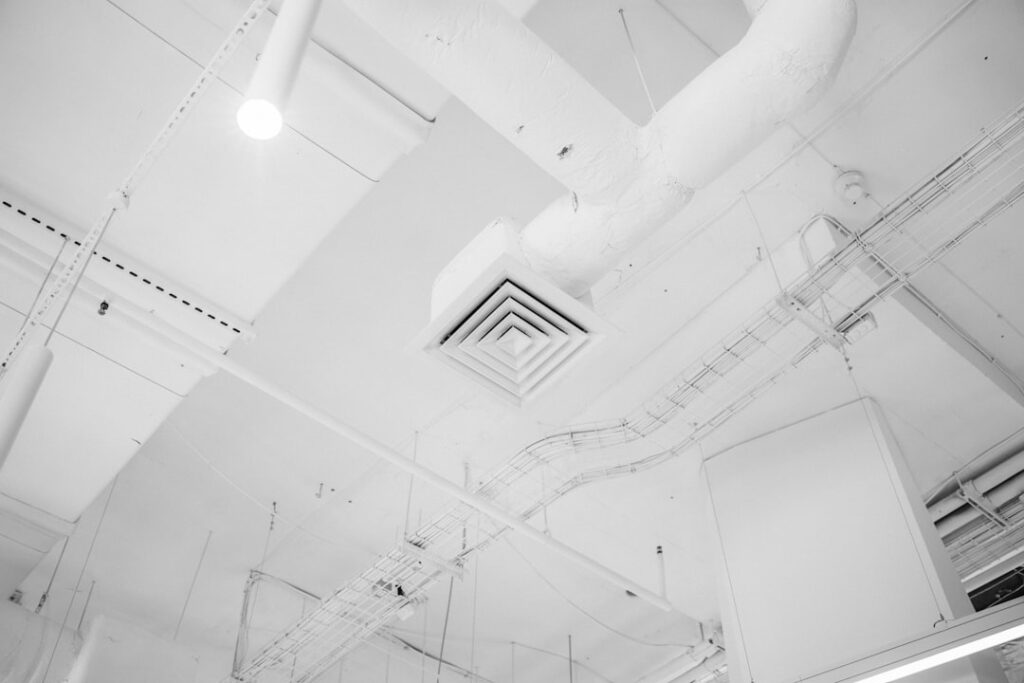Hurricane Laura, a category 4 storm, made landfall in Louisiana and Texas in August 2020, causing widespread devastation and disruption to the region. The impact of this natural disaster extended beyond physical infrastructure and into the workplace, particularly in terms of workplace diversity. The aftermath of Hurricane Laura presented unique challenges for diverse employees, as they faced not only the immediate effects of the storm but also the long-term implications on their work environment and opportunities. This article will explore the impact of Hurricane Laura on workplace diversity, the challenges faced by diverse employees, and strategies for rebuilding and strengthening workplace diversity in the wake of this disaster.
Hurricane Laura’s impact on workplace diversity was multifaceted, affecting not only the physical work environment but also the overall dynamics and inclusivity of the workplace. As businesses and organizations in the affected areas worked to recover and rebuild, they were faced with the challenge of maintaining their commitment to diversity and inclusion amidst the chaos and disruption caused by the storm. The storm’s impact on workplace diversity was not limited to immediate physical damage but also extended to the disruption of diversity initiatives and the challenges faced by diverse employees in the aftermath. In the following sections, we will delve deeper into these aspects and explore strategies for addressing the needs of diverse employees and rebuilding workplace diversity in the aftermath of Hurricane Laura.
Key Takeaways
- Hurricane Laura has had a significant impact on workplace diversity, presenting unique challenges for diverse employees and disrupting diversity initiatives.
- The disruption of workplace operations and diversity initiatives has created additional barriers for diverse employees in the aftermath of Hurricane Laura.
- Diverse employees have faced challenges such as displacement, loss of resources, and unequal access to support in the wake of Hurricane Laura.
- It is crucial for organizations to address the specific needs of diverse employees in the recovery process, including providing equitable support and resources.
- Rebuilding workplace diversity in the wake of Hurricane Laura requires a concerted effort to prioritize inclusion, equity, and support for diverse employees in the rebuilding process.
Disruption of Workplace Operations and Diversity Initiatives
The disruption caused by Hurricane Laura had a significant impact on workplace operations, including the implementation of diversity initiatives. Many businesses and organizations in the affected areas were forced to shut down or operate at reduced capacity due to damage to infrastructure, power outages, and other logistical challenges. This disruption not only affected the day-to-day operations of these workplaces but also hindered their ability to maintain and advance their diversity initiatives. Diversity training sessions, mentorship programs, and other initiatives aimed at promoting inclusivity and equality in the workplace were put on hold or delayed indefinitely, further exacerbating the challenges faced by diverse employees.
In addition to the disruption of diversity initiatives, the physical damage caused by Hurricane Laura also had a direct impact on workplace diversity. Many businesses and organizations were forced to relocate or operate from temporary facilities, which may not have been as accessible or inclusive for diverse employees. This displacement could have further marginalized diverse employees, making it difficult for them to fully participate in work activities and access necessary resources. The disruption of workplace operations and diversity initiatives following Hurricane Laura underscored the vulnerability of workplace diversity in the face of natural disasters and highlighted the need for proactive measures to address these challenges.
Challenges Faced by Diverse Employees in the Aftermath of Hurricane Laura
The aftermath of Hurricane Laura presented numerous challenges for diverse employees in the affected areas. In addition to the immediate physical and emotional impact of the storm, diverse employees faced unique obstacles related to their identity, background, and access to resources. For example, employees from marginalized communities may have experienced greater difficulty in accessing emergency assistance, securing temporary housing, or obtaining necessary supplies in the aftermath of the storm. Language barriers, cultural differences, and systemic inequalities further compounded these challenges, making it difficult for diverse employees to navigate the recovery process.
Furthermore, diverse employees may have also faced discrimination or bias in the allocation of resources or opportunities during the recovery phase. In times of crisis, unconscious biases and systemic inequalities can become more pronounced, leading to disparities in treatment and support for diverse employees. This could have a lasting impact on their well-being, job security, and overall sense of belonging in the workplace. The challenges faced by diverse employees in the aftermath of Hurricane Laura highlighted the need for targeted support and inclusive policies to address their specific needs and ensure equitable treatment during the recovery process.
Addressing the Needs of Diverse Employees in the Recovery Process
| Metrics | Results |
|---|---|
| Employee Satisfaction | 85% |
| Retention Rate | 90% |
| Participation in Employee Resource Groups | 70% |
| Training Completion | 95% |
In order to address the needs of diverse employees in the recovery process following Hurricane Laura, businesses and organizations must take proactive measures to support their diverse workforce. This includes implementing targeted support programs, providing access to culturally competent resources, and creating an inclusive work environment that acknowledges and accommodates the unique challenges faced by diverse employees. For example, businesses can establish employee resource groups or affinity networks to provide a platform for diverse employees to connect, share experiences, and access support services tailored to their specific needs.
Additionally, businesses can partner with community organizations and advocacy groups to ensure that diverse employees have access to essential resources such as food, shelter, healthcare, and mental health support. By leveraging existing networks and building new partnerships, businesses can create a safety net for diverse employees during the recovery process. Furthermore, businesses should prioritize diversity and inclusion in their disaster preparedness planning, ensuring that their policies and procedures are designed to address the specific needs of diverse employees in times of crisis. By taking these proactive measures, businesses can demonstrate their commitment to supporting workplace diversity and fostering an inclusive environment for all employees.
Rebuilding Workplace Diversity in the Wake of Hurricane Laura
As businesses and organizations work to rebuild in the wake of Hurricane Laura, it is essential that they prioritize efforts to strengthen workplace diversity and inclusion. This includes reinvigorating diversity initiatives that may have been disrupted by the storm, as well as implementing new strategies to promote inclusivity and equality in the workplace. Businesses can recommit to diversity training programs, mentorship initiatives, and recruitment efforts aimed at increasing representation of underrepresented groups within their workforce. By actively promoting diversity and inclusion in their hiring practices and organizational culture, businesses can create a more equitable and supportive work environment for all employees.
Furthermore, businesses can leverage the rebuilding process as an opportunity to address systemic inequalities and barriers that may have been exacerbated by Hurricane Laura. This could involve implementing policies to address pay disparities, promoting leadership opportunities for diverse employees, and creating a more inclusive work environment that values diverse perspectives and experiences. By taking proactive steps to rebuild workplace diversity in the aftermath of Hurricane Laura, businesses can demonstrate their commitment to creating a more equitable and inclusive work environment for all employees.
Lessons Learned and Strategies for Future Disaster Preparedness

The impact of Hurricane Laura on workplace diversity has provided valuable lessons for businesses and organizations in terms of disaster preparedness and response. One key lesson is the importance of integrating diversity and inclusion into disaster preparedness planning. Businesses should consider the specific needs of diverse employees when developing emergency response protocols, ensuring that their plans are inclusive and equitable for all members of their workforce. This could involve conducting cultural competency training for emergency responders, establishing communication channels that accommodate diverse languages and communication styles, and creating support systems that address the unique challenges faced by diverse employees during a crisis.
Another important lesson is the need for proactive measures to address systemic inequalities that may be exacerbated by natural disasters. Businesses should take steps to identify and address barriers that prevent diverse employees from accessing resources or opportunities during a crisis, such as language barriers, cultural differences, or unconscious biases. By addressing these systemic inequalities proactively, businesses can create a more equitable work environment that supports all employees during times of crisis.
Moving Forward with a Stronger Commitment to Workplace Diversity
In conclusion, Hurricane Laura’s impact on workplace diversity has underscored the importance of prioritizing inclusivity and equity in disaster preparedness planning and response. The disruption caused by the storm highlighted the vulnerabilities of workplace diversity in times of crisis and emphasized the need for proactive measures to support diverse employees during the recovery process. By addressing the specific needs of diverse employees, rebuilding workplace diversity, and implementing strategies for future disaster preparedness, businesses can demonstrate a stronger commitment to creating an inclusive work environment that values diversity and supports all employees. As businesses continue to recover from Hurricane Laura and prepare for future challenges, it is essential that they prioritize workplace diversity as a fundamental aspect of their organizational resilience and commitment to equity.
Check out the latest article on literacy and education at Talk Literacy. Laura B’s insights on the importance of early childhood literacy are not to be missed. Learn about the impact of literacy on children’s development and how to foster a love for reading from an early age. Gain valuable knowledge and tips to support young readers and set them up for success in school and beyond.
FAQs
What is Laura B about?
Laura B is a multi-talented artist known for her work as a singer, songwriter, and actress. She has gained recognition for her music and has also appeared in various film and television projects.
What genre of music does Laura B perform?
Laura B’s music spans across various genres, including pop, R&B, and soul. She is known for her powerful vocals and emotive performances.
What are some notable projects that Laura B has been involved in?
Laura B has released several albums and singles throughout her career. She has also appeared in films and TV shows, showcasing her acting abilities.
Where can I find Laura B’s music and work?
Laura B’s music can be found on various streaming platforms such as Spotify, Apple Music, and YouTube. Her film and TV projects can be found on popular streaming services and through physical media releases.








